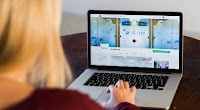VPNs And Safer Web Browsing Role Of VPNs In Classrooms
VPNs are a popular way to protect your privacy and security online. VPNs provide a secure tunnel for your internet traffic which can be encrypted from end-to-end. This means that nobody in between can see what you're doing on the internet no matter how close they are to you.
VPNs In Schools
Since the rise of digitalization, privacy and online security have become a major concern. Schools and universities are no exception to this. As students are increasingly using internet for their studies, teachers are also looking for ways to ensure their safety.
The best VPNs for educators and students offer a range of services from basic protection to advanced protection. This means that the schools can choose what kind of service they need for their students according to the level of security they require.
A VPN can help you with 5 amazing use cases:
- Protecting your privacy and security while browsing the web in public places
- Accessing blocked content
- Protecting yourself from hackers on public WiFi networks
- Getting around geographic restrictions
- Securing your data on unsecured networks
Establishing and Implementing Encryption & Security Protection
This guide will be beneficial to anyone who has the responsibility of managing a College Campus Network or anyone who has interest in establishing encryption and security protections for their school.
Process for encryption, Security, And Cyber Protection In Schools And College Campuses
Encryption is a process of encoding data in such a way that it cannot be read by unauthorized people. Encryption protects data from being accessed by hackers, and it also helps to prevent accidental data loss or deletion.
The Process For Encryption, Security And Cyber Protection is as follows:
1. Identify the threats
2. Assess the risks
3. Develop an action plan
4. Implement the plan with technology
5. Train staff on how to use the new system
6. Execute testing of all components of the system
7. Put contingency plans in place for when something goes wrong with the system and test these plans periodically
8. Monitor your systems continuously
9. Educate Employees: Education is essential to any successful cybersecurity plan. Make sure all employees know how to identify phishing scams, malware and other threats that could compromise your network security.
10. Implement Strong Passwords: Passwords are the most basic form of authentication—without them it's impossible to keep intruders out of your system. Make sure you're using strong passwords and rotating them often so they don't become easy targets for hackers.
How to Create Safe Passwords and Setup Strong Passphrase
Passwords are the first line of defense for your personal information.
A strong password should be difficult to guess and easy to remember. There are many ways to create a safe password, but the easiest way is by following these 6 steps:
- Avoid using words in any language that is not your own.
- Do not use any part of your name, social security number or date of birth.
- Use at least one capital letter at least, one lower case letter, and at least one number.
- Avoid using the same password for all accounts.
- Change your passwords frequently (at least every 90 days).
Teachers Using VPNs( Virtual Private Networks In Education)
In the contemporary world, teachers are using VPNs to protect their data from being hacked and also to protect kids from cyberbullying. They also use it for accessing content that is blocked in their country.
Educators have been noticing a lot of benefits after installing VPN services on their computers. They can now access any content they want and they don't have to worry about being hacked.
What Is a Virtual Private Network (VPN)
A VPN is a network of computers that is spread across the internet. It is a private network because it uses encryption to keep your data safe and hidden from other people on the internet.
What VPN Does
A VPN is a virtual private network or network device that allows you to remotely connect to the internet through another network such as, the one at work or home. The VPN software encrypts all data coming and going from your device, including both outgoing and incoming connections. This helps prevent third parties from intercepting your data and using it for their own purposes.
The most common use of VPNs is to provide remote employees with secure access to their company's internal systems. The main idea behind the creation and usage of VPNs is that they are used by organizations who want to extend their intranet from one location to another. This can be done by using a wide area network (WAN) or a metropolitan area network (MAN).
A VPN can help you to stay safe when you are using public WiFi or if you are traveling to a country where the government might be spying on its citizens' internet activity.
A VPN creates an encrypted tunnel between your computer and the server. This means that all of your data will be encrypted as well as any data passing through this tunnel.
What Is The Need for VPNs
VPNs are used for many different things. You might use one when you want to protect your connection from being monitored by your ISP. Or if you're traveling and don't want your location to be tracked. They can also be used to access region-locked content online like movies or TV shows that are only available in certain countries.
Dangers of Unprotected Websites To Your Computer
Unprotected websites are not safe for you to visit because they have viruses and malware that can infect your computer. These sites will also attack any device you connect to them with, like a mobile phone or tablet.
Some sites are even designed for the sole purpose of stealing passwords and other sensitive information from the user.
How Does VPNs Hide Your Location
VPNs help you to hide your IP address, which is the unique number that identifies your device on the internet. They do this by encrypting all of your internet traffic and sending it through their own servers.
This way, anyone who is spying on you will see them instead of your real IP address. In order to get a VPN, you need to sign up for a monthly subscription and download their app onto your device.
Safer Web Browsing With An Undisclosed IP Address
It's not uncommon for people to use a VPN when they want to browse the internet in a secure way. A VPN or Virtual Private Network is a service that allows you to browse the internet without revealing your IP address. It also encrypts the traffic between your device and its servers so that nobody can see what you are doing online.
There are many reasons why someone might want to browse the internet anonymously, but one of the most common is so that they can access sites that are blocked in their country. If you live in China, for example, and don't have any other way of getting around the Great Firewall, then using a VPN is one of your only options.
A VPN also has some other benefits - it can be used to get past censorship filters like those imposed by Iran, China, and Syria.
Securing Internet Activity With Private Communications
Proxify is a free and powerful internet security tool that can be used to secure your internet activity. It can be used to protect your privacy, personal data and sensitive information from being accessed by third parties.
Why use Proxify?
It helps you stay anonymous on the web, bypass censorship restrictions, access geo-restricted content in other countries where you are not physically present and surf the web securely with encryption.
How Some People Use VPN To Book Cheap Flights
If you're looking to book cheap flights, but don't want to give away your location, then a VPN is the perfect solution. A VPN encrypts your data and routes it through an intermediary server in a different country. This means that your internet service provider can't see what you're doing online so, they can't tell where you are.
A VPN also hides which website you are accessing. This means that if a website has content that is region-specific like Netflix or BBC iPlayer then, the website will show the content for the country where the VPN server is located rather than from where you are logging in from.
Is It Safe To Use VPN on Mobile Phones
The question of whether it is safe to use a VPN on your mobile phone can be answered with a yes. But, there are some things you need to take into account before you decide to do so.
For starters, if you're using a public Wi-Fi network then, it's best not to use VPN on your mobile phone. This is because hackers and cybercriminals can get access to the data that's being sent over the network by using a man-in-the-middle attack.
If you want to use VPN on your mobile phone then, make sure that you're using the company's own private Wi-Fi network and that it's protected with strong passwords and encryption.
How To Turn Off VPN On A Phone
- Go to Settings
- Scroll down and tap on VPN
- Tap on the “i” icon next to the VPN that is turned ON and then tap “Disconnect”
Is There A Completely Free VPN
A free VPN is a service that will provide you with the ability to browse the internet anonymously and securely.
There are a few different types of free VPNs. Some will limit your bandwidth, while others may have ads on the app or website that you need to put up with. There are also free VPNs that will require you to complete surveys, watch videos or download apps in order to use them for a certain amount of time.
 |
| model with paypal gift card |
Best Free VPNs
1. Opera Free VPN
2. TunnelBear VPN
3. Hotspot Shield Free VPN
4. CyberGhost Free VPN
5. Windscribe Free VPN
6. ZenMate Security & Privacy VPN
7. ProtonVPN Free Version (Limited)
8. PureVPN Free Version (Limited)
9. Avira Phantom VPN Lite (Free)
10. Betternet Unlimited Free VPN
How To Get Free VPN On A Phone
1) Download and install a VPN app on your phone.
2) Connect to a VPN server.
3) Turn on the VPN.
4) Open the browser and type in “what is my IP address” without quotes.
5) The IP address should now show up as the country of that VPN server you are connected to instead of your real IP address.
6) Type in a website URL (any one will do).
7) You should see that website load up with your new IP address as the country location, meaning you are now browsing with a fake IP address to protect your privacy and security online.
Conclusion:
In the modern world we are all connected. We are on our phones, laptops, and tablets. We have the internet at our fingertips and we can access anything we want at any time.
The problem with this is that it exposes us to potential threats from cybercriminals and hackers who want to steal our personal information or malware that could damage our devices.
VPNs are a way to combat these threats by creating an encrypted tunnel between your device and the internet.
When you connect to a VPN server, your data is encrypted so nobody can see what you're doing online.
A VPN also hides your IP address which will protect you from being tracked by advertisers or other third parties who may have malicious intentions for your data.
VPNs should be used because they are affordable, high-performance, and easy to use.
VPNs are an excellent way to protect privacy and security while browsing the internet. They also allow access to geo-restricted content like Netflix, Hulu or BBC iPlayer.
VPNs are not just for techies and privacy advocates. They can be used by anyone who is looking to protect their identity online. VPNs can be used on any device from smartphones to tablets to laptops and PCs.







Comments
Post a Comment